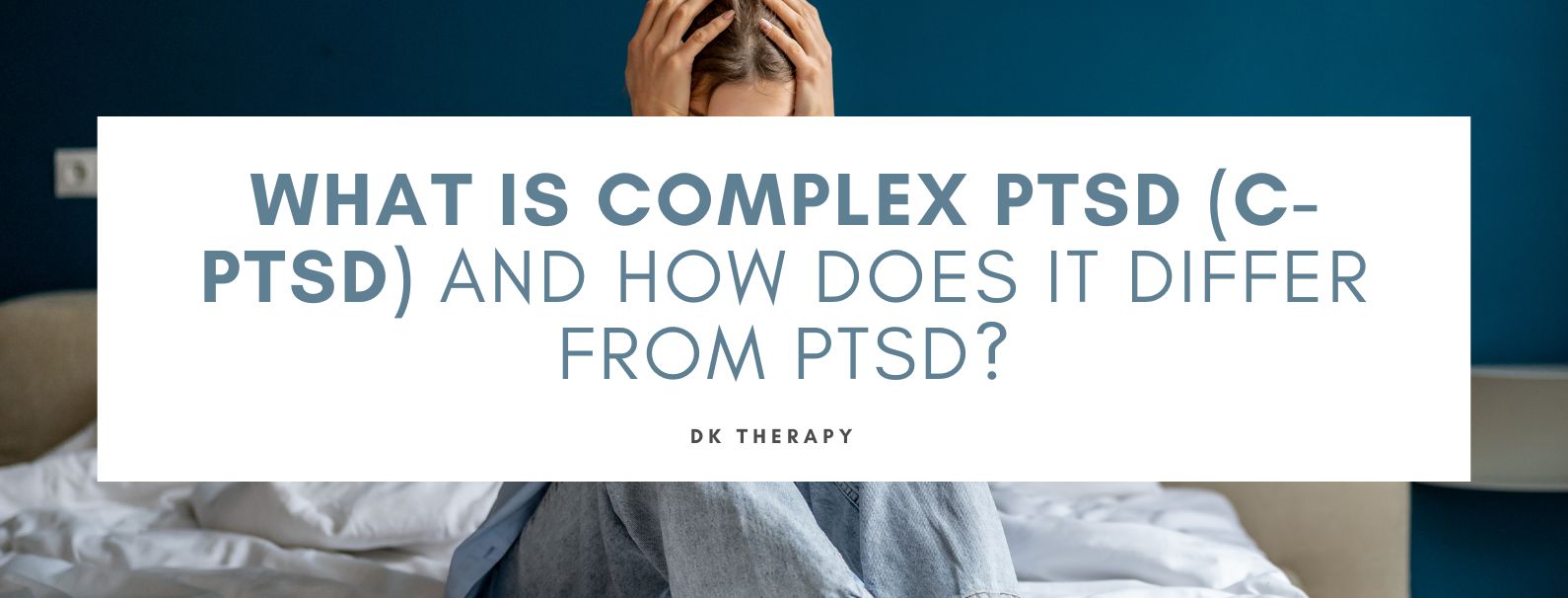
Post-Traumatic Stress Disorder (PTSD) is a mental health condition that can arise after experiencing or witnessing a traumatic event. But for some individuals, especially those who endured long-term or repeated trauma, a different diagnosis may be more appropriate: Complex PTSD (C-PTSD). Both conditions share similarities, but C-PTSD points to additional layers of emotional and psychological symptoms that develop due to the chronic nature of the trauma involved.
Understanding the differences between PTSD and C-PTSD is not just a matter of terminology. These diagnoses can shape how someone receives care, pursues healing, and regains their sense of safety in the world.
Defining PTSD
 PTSD can develop as a response to a traumatic event, such as a car accident, assault, military combat, or even a natural disaster.
PTSD can develop as a response to a traumatic event, such as a car accident, assault, military combat, or even a natural disaster.
People living with PTSD may experience:
- Intrusive memories or flashbacks
- Avoidance of reminders of the trauma
- Negative changes in thinking or mood, such as persistent fear, guilt, or shame
- Hyperarousal symptoms, including being easily startled or having difficulty sleeping
PTSD can interfere with daily activities, relationships, well-being, and overall functioning. It’s a legitimate and serious health condition that calls for proper support and well-rounded treatment.
What is Complex PTSD (C-PTSD)?
C-PTSD develops in response to chronic, prolonged exposure to trauma, often during childhood. These incidents may take the form of frequent abuse, neglect, domestic violence, or even living in war-torn environments. This sort of trauma is not only constant, but it often takes place in relationships where trust and safety are expected.
C-PTSD includes all the main symptoms of PTSD, but it also introduces three additional dimensions:
- Emotional dysregulation: Difficulty managing emotions such as anger, sadness, or fear. These feelings can manifest in the form of intense and unpredictable mood swings.
- Negative self-perception: Deep-seated feelings of worthlessness, shame, or guilt. Individuals may struggle with self-criticism and thoughts of failure constantly disrupting their efforts.
- Interpersonal difficulties: Trouble maintaining relationships, chronic mistrust, fear of abandonment, or isolation from others.
Key Differences Between PTSD and C-PTSD
Though PTSD and C-PTSD are similar in their foundations, the duration and complexity of the trauma experienced can greatly influence how these conditions manifest.
PTSD usually results from a single traumatic incident, while C-PTSD develops after long-term, repeated trauma. People with PTSD may have symptoms centered around fear and distress, but those with C-PTSD often face broader emotional challenges, such as difficulty regulating emotions, deep shame or a sense of worthlessness, and persistent struggles with trust and relationships. These added layers of pain reflect the sustained and often relational nature of the trauma those with C-PTSD have had to endure.
Why the Distinction Matters
Traditional therapies for PTSD, such as Cognitive Behavioral Therapy (CBT) or Exposure Therapy, may not be entirely effective for those with C-PTSD. People with this condition often benefit from therapies that promote emotional regulation, rebuilding the individual’s sense of self, and helping them form healthy attachments. Eye Movement Desensitization and Reprocessing (EMDR), Internal Family Systems (IFS), or trauma-informed relational therapies may be appropriate for individuals with C-PTSD.
Being misdiagnosed or undiagnosed can leave individuals feeling misunderstood or entirely unsupported. A clear diagnosis of PTSD or C-PTSD addresses the complexity of their experience and can open doors to the most effective healing options.
You Can Move Forward
If you or someone you love is struggling with the lasting impact of trauma, it’s important to know that help is available. Even if the trauma feels like it’s deeply ingrained into your identity, the right support system can inspire truly wonderful changes. Recovery is often a long and difficult journey, but overcoming the horrors of the past is possible.
Acknowledging the scope of trauma someone has endured is the first step toward real healing. PTSD and C-PTSD don’t have to define a person’s future. Instead, these diagnoses can be a great help in finding a way forward.
If you’re struggling and you’d like to work with an experienced mental health professional, reach out to us at DK Therapy.




